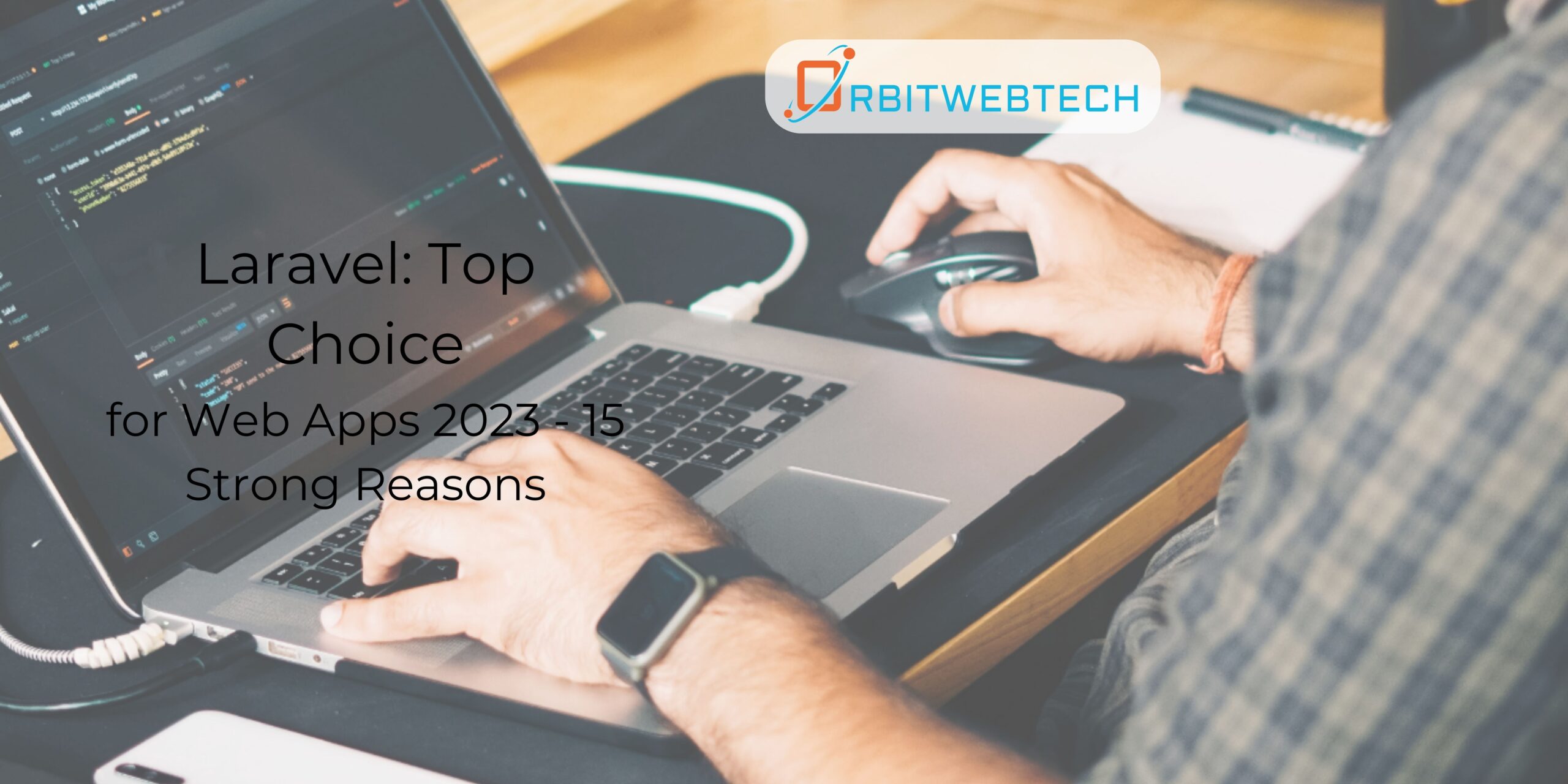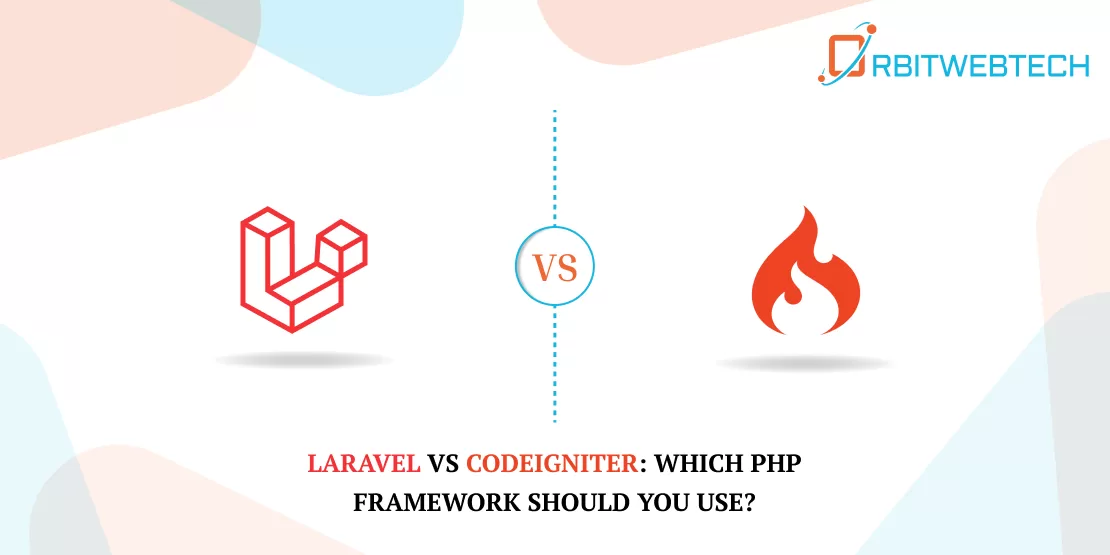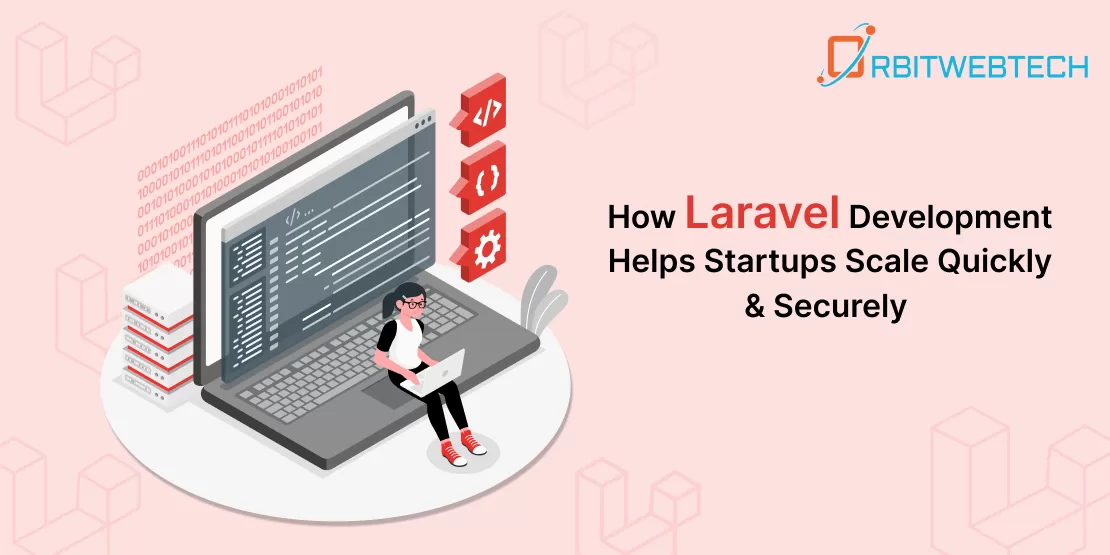
The field of web development is continually advancing, with the continuous emergence of fresh frameworks and technologies. Laravel remains the top choice for web apps, offering unparalleled features and efficiency. Nevertheless, an enduring framework in this ever-evolving landscape is Laravel.
Laravel, a PHP framework celebrated for its graceful syntax, extensive feature suite, and vibrant community, has solidified its position as a preferred option for web developers aiming to construct sturdy and effective web applications.
Tech experts often endorse Laravel for creating budget-friendly and scalable business applications tailored to the needs of entrepreneurs.
In this article, we will explore why Laravel continues to be the preferred framework for web application development. We will discuss the features that make Laravel web app development a popular choice for entrepreneurial business solutions.
What is Laravel?
Laravel, an open-source PHP framework, was initially developed by Taylor Otwell in 2011. It is renowned for its user-friendly approach, versatility, and simplicity. When it comes to Laravel development, it adheres to the Model-View-Controller (MVC) architectural pattern and takes advantage of PHP’s capabilities to offer a comprehensive array of tools and features for constructing contemporary web applications.
Laravel is a versatile framework suitable for various project sizes, spanning from small business websites to extensive enterprise applications. It provides built-in support for fundamental web development components such as routing, caching, security, and database administration. Moreover, it seamlessly integrates with external libraries and services, enhancing its flexibility.
15 Compelling Reasons to Opt for Laravel Top Choice for Web Apps
1. Elegant Syntax and Developer-Friendly
The syntax of Laravel is characterized by its cleanliness, expressiveness, and ease of comprehension, which empowers developers to craft code that is not only efficient but also highly legible. Its intuitive architecture and comprehensively documented APIs contribute to its user-friendliness, enabling developers to quickly gain proficiency with the framework.
Laravel’s commitment to enhancing developer productivity is apparent through its Artisan command-line interface, streamlining repetitive tasks, and the Laravel Forge server management tool, which simplifies server configuration and deployment.
2. Blade Templating Engine
Laravel boasts the Blade templating engine as a notable feature. Blade is a streamlined yet robust templating system that streamlines the process of generating dynamic web pages.
Blade, known for its user-friendly syntax and optimal performance, stands out as a compelling option for creating high-performance web applications.
3. MVC Architecture
Laravel adheres to the Model-View-Controller (MVC) architectural pattern, which encourages a distinct division of responsibilities and improves the structure of the code. This division empowers developers to tackle various aspects of the application autonomously, simplifying maintenance and facilitating future improvements.
Laravel, by following the Model-View-Controller (MVC) architecture, encourages the reusability of code and facilitates the creation of scalable applications.
4. Built-in Authentication System
Laravel features an integrated authentication system that empowers developers to efficiently incorporate user authentication and authorization. With its provision of pre-designed authentication controllers, middleware, and views, Laravel simplifies the task of integrating user authentication into applications, enabling developers to concentrate on other essential functionalities.
5. Artisan Command-Line Interface
Laravel’s Artisan command-line interface is a powerful tool that offers developers a versatile set of commands accessible from the command line. Artisan comes equipped with an extensive collection of built-in commands that streamline various tasks, such as generating boilerplate code, overseeing database migrations, executing tests, and much more. This command-line interface significantly boosts developer efficiency and provides convenient automation possibilities.
6. Eloquent ORM
Laravel’s Eloquent ORM (Object-Relational Mapping) stands as a fundamental pillar that augments the framework’s functionalities. It presents a developer-friendly and expressive interface for database operations, streamlining activities like querying, inserting, updating, and deleting data. Eloquent empowers developers to work harmoniously with databases and leverage streamlined data administration.
7. Robust Security
Security is of utmost importance in web application development, and Laravel effectively addresses this concern. It integrates various security features, such as secure password hashing, protection against cross-site scripting (XSS) attacks, and measures to prevent SQL injection, ensuring the robust security of web applications.
Laravel simplifies user authentication and access control through its integrated authentication and authorization features.
8. Laravel Ecosystem
Laravel’s enduring popularity can be attributed to its flourishing ecosystem. Within the Laravel community, there exists a rich assortment of packages, libraries, and extensions collectively referred to as the “Laravel Ecosystem.” This array of resources offers pre-built solutions for frequently encountered tasks like authentication, caching, form validation, and various other functionalities.
9. Database Management
Laravel streamlines database management, making it more user-friendly. Eloquent, its object-relational mapping (ORM) tool, offers a straightforward and expressive syntax for database interaction, eliminating the necessity of crafting intricate SQL queries.
Eloquent offers compatibility with multiple database systems, such as MySQL, PostgreSQL, and SQLite, thereby providing versatility to meet the diverse needs of various projects.
10. Continuous Improvement
The Laravel development team is dedicated to enhancing the framework through the introduction of new features, bug fixes, and performance optimizations. This unwavering commitment to ongoing improvement guarantees Laravel’s continued relevance and its status as a leading player in the web development sector.
11. Testing and Debugging
Laravel boasts robust testing and debugging tools that enhance the development process. The framework includes a testing suite equipped with native support for unit testing, integration testing, and acceptance testing.
Furthermore, Laravel’s error handling and logging system provide developers with comprehensive tools to quickly identify and resolve issues, thereby enhancing the overall quality and stability of web applications.
12. Versatility
Laravel stands out as a versatile framework ideal for a wide range of web applications, spanning from basic blog platforms to intricate enterprise solutions. Its adaptability caters to developers in search of a robust and adaptable framework to fulfill a variety of project needs.
13. Large and Active Community
Laravel enjoys an active community of dedicated developers who play a pivotal role in advancing the framework and assisting their peers. This vibrant community provides a plethora of valuable resources, including tutorials, documentation, and plugins, facilitating the seamless acquisition of knowledge and utilization of Laravel.
14. Built-in Security Features
Laravel integrates strong security components that protect web applications from prevalent vulnerabilities such as cross-site scripting (XSS), SQL injection, and cross-site request forgery (CSRF). The framework’s inherent security measures offer developers a sense of confidence, establishing Laravel as a reliable option for web application development.
15. Compatibility with Modern Technologies
Laravel seamlessly integrates with contemporary technologies, including cloud services, mobile apps, and APIs. This compatibility empowers Laravel developers to construct web applications that align with the latest technological trends, guaranteeing that they keep their projects current and future-proof.
Usage of Laravel Among Top Industry Verticals
1. E-commerce:
Many businesses leverage Laravel’s features to build robust and scalable online stores, making it a popular choice in the e-commerce industry. The framework’s flexible architecture, extensive library support, and efficient performance make it an excellent option for e-commerce platforms.
2. Media and Entertainment:
Laravel has gained popularity in the media and entertainment sector due to its proficiency in managing content systems (CMS) and media-rich applications. Its refined syntax, robust database management features, and effortless incorporation of APIs and external services empower developers to craft engaging and interactive platforms.
3. Education:
Numerous educational establishments and online learning platforms have adopted Laravel for crafting their web applications. Its ease of use, robust authentication capabilities, and capacity to handle intricate data arrangements render it a favored selection for constructing educational platforms and systems.
4. Finance and Banking:
Laravel has gained significant traction in the finance and banking industries due to its strong emphasis on security. The framework’s robust security measures, capacity to manage intricate database tasks, and capability to process large transaction volumes have made it a favored choice for developing secure and dependable financial applications. These applications include but are not limited to banking portals, payment gateways, and financial management systems.
5. Healthcare:
Laravel places a strong focus on security and aligns seamlessly with the healthcare industry’s rigorous standards. Its robust authentication and authorization systems, along with its capacity to handle large datasets, empower developers to create secure and scalable healthcare solutions. These may include patient portals, electronic health records (EHR) systems, and telemedicine platforms.
6. Travel and Tourism:
The travel and tourism sector leverages Laravel’s versatility and its capability to manage intricate booking systems, itinerary administration, and payment processing. Laravel’s user-friendly syntax and comprehensive library support empower developers to create sophisticated travel platforms, providing smooth user experiences.
Laravel has garnered substantial popularity in various industries, but it’s worth mentioning that its applicability isn’t limited to these sectors. The framework’s adaptability, comprehensive documentation, and robust community backing have solidified its position as a favored option in a wide array of domains. This empowers developers to create inventive and well-performing web applications.
Combining Laravel With Other Popular Frameworks for Web App Development
Vue.js
Vue.js is a versatile JavaScript framework designed for crafting user interfaces progressively. When coupled with Laravel, it enables the creation of dynamic and engaging front-end experiences. This fusion of Laravel’s robust back-end functionalities and Vue.js’s front-end framework facilitates the streamlined construction of contemporary single-page applications (SPAs).
Bootstrap
Bootstrap stands as a highly utilized CSS framework, offering a repository of pre-designed user interface elements and adaptive page structures. By seamlessly combining Bootstrap with Laravel, developers can expedite the prototyping process and craft aesthetically pleasing web applications.
ReactJS
React is a widely recognized JavaScript library used for creating user interfaces. In this setup, Laravel serves as the backend API, while React takes care of frontend rendering and user interactions. This synergy allows for the creation of robust, high-performance, and easily scalable applications.
Symfony Components
Laravel leverages a collection of Symfony components, which are essentially a set of reusable PHP libraries. Those who have experience with Symfony can effectively utilize these components in conjunction with Laravel to improve features and simplify the web development workflow.
Livewire
Livewire is a comprehensive framework designed for Laravel, empowering developers to create dynamic user interfaces through server-side rendering methods. It streamlines the implementation of real-time functionality and elevates the user interaction, all without demanding an in-depth grasp of JavaScript.
Lumen
Lumen is a lightweight and high-speed micro-framework developed by the creators of Laravel. This framework is primarily intended for constructing microservices, APIs, and smaller applications that demand exceptional performance. A common practice is to combine Lumen with Laravel, allowing for the establishment of a scalable system. In this configuration, Laravel oversees the central application logic, with Lumen tasked with managing specific microservices or APIs.
Docker
Docker, a widely recognized containerization platform, provides developers with the capability to efficiently develop, deploy, and manage applications. When developers use it in conjunction with Laravel, this partnership empowers them to create web applications distinguished by significant portability and scalability. This capability enables these applications to function seamlessly across various environments.
Are you prepared to commence Laravel development for your upcoming project?
Laravel stands out as a robust backend framework, ideally tailored for various web application development endeavors. Its graceful syntax, extensive feature arsenal, and vibrant developer community position it as a prime selection for those seeking to create resilient, streamlined, and secure web applications.
If you have a unique web application idea in mind, don’t hesitate to reach out to our team of skilled Laravel developers.


